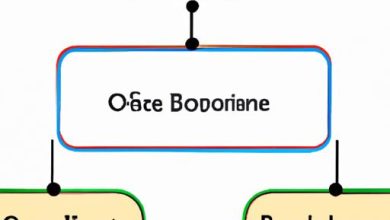Data Privacy vs Data Security: Safeguarding Your Digital Assets

In the vast digital landscape of the modern age, where every click and swipe generates valuable data, the need to protect sensitive information has become paramount. As we navigate this data-driven world, two concepts, data privacy, and data security, emerge as the pillars safeguarding our digital assets. But what exactly do these terms mean? And why are they crucial in the digital age we find ourselves in?
Data Privacy: At its core, data privacy refers to the protection of personal information from unauthorized access or use. It encompasses the rights of individuals to control and manage their data, ensuring that it is collected, stored, and utilized in a manner that respects their privacy. From financial details to healthcare records, maintaining data privacy is vital for preserving personal autonomy and preventing misuse or exploitation.
Data Security: While data privacy focuses on the protection of personal information, data security takes a broader approach by safeguarding all types of data, including sensitive corporate and governmental data. Data security measures aim to prevent unauthorized access, alteration, or destruction of data, ensuring its confidentiality, integrity, and availability. Robust data security measures are essential in safeguarding against malicious attacks, data breaches, and identity theft.
In the digital age, where the volume of data being generated and shared is expanding exponentially, the importance of data privacy and data security cannot be overstated. We often find ourselves entrusting our personal and financial information to various online platforms, making it crucial to understand the relationship between data privacy and data security.
Data privacy and data security are deeply intertwined, working hand in hand to ensure the safety and integrity of our digital lives. While data privacy focuses on regulating the collection and usage of personal information, data security provides the technical means to protect that information. Together, they form a comprehensive framework that addresses the ethical and technical aspects of data protection.
In the following sections, we will delve deeper into the nuances of data privacy and data security, exploring their definitions, significance, and the interplay between the two. Join me as we unravel the intricacies of these essential concepts and empower ourselves with the knowledge to navigate the digital landscape with confidence and peace of mind.
Understanding Data Privacy
A. Definition of Data Privacy
Data privacy refers to the protection of personal information from unauthorized access, use, or disclosure. It encompasses the rights and expectations individuals have regarding the collection, storage, and handling of their data. Data privacy ensures that individuals have control over their personal information and that it is used in a manner that aligns with their consent and expectations.
B. Importance of Data Privacy for Individuals and Businesses
Data privacy holds immense significance for both individuals and businesses in today’s digital landscape. For individuals, data privacy safeguards their personal information, preserving their autonomy, and preventing potential harm. It allows individuals to maintain control over their digital identities, protecting them from identity theft, fraud, and other cybercrimes.
Businesses, on the other hand, have a responsibility to protect the data they collect from customers, employees, and partners. Data privacy is crucial for maintaining customer trust and loyalty. When businesses prioritize data privacy, they demonstrate their commitment to respecting their customers’ rights and protecting their sensitive information. This builds trust, strengthens brand reputation, and can even provide a competitive advantage in the market.
C. Laws and Regulations Related to Data Privacy
Data privacy is not only a matter of ethics and best practices but is also governed by laws and regulations. Governments around the world have recognized the importance of data privacy and have enacted legislation to protect individuals’ personal information. Examples include the European Union’s General Data Protection Regulation (GDPR), California Consumer Privacy Act (CCPA), and Brazil’s Lei Geral de Proteção de Dados (LGPD).
These laws outline guidelines for how organizations should handle personal data, emphasizing the need for transparency, consent, and security. They grant individuals certain rights, such as the right to access their data, the right to be forgotten, and the right to request the deletion or correction of inaccurate information. Compliance with these regulations is crucial for businesses to avoid legal repercussions and maintain the trust of their customers.
Understanding data privacy is essential for individuals and businesses alike. By respecting privacy rights, organizations can foster a culture of trust and security, while individuals can confidently navigate the digital landscape, knowing that their personal information is being handled responsibly. In the next section, we will explore the intricacies of data security and its role in protecting sensitive data.
Exploring Data Security
A. Definition of Data Security
When it comes to safeguarding sensitive information, data security plays a pivotal role. Data security refers to the implementation of measures and protocols to protect data from unauthorized access, alteration, or destruction. It encompasses various technologies, practices, and policies aimed at ensuring the confidentiality, integrity, and availability of data.
Data security involves not only protecting data while it is stored but also during transmission and processing. It encompasses a wide range of protective measures, from encryption and access controls to firewalls and intrusion detection systems. By implementing robust data security measures, organizations can mitigate risks and safeguard their valuable digital assets.
B. Significance of Data Security in Protecting Sensitive Information
In today’s interconnected world, where cyber threats loom large, the significance of data security cannot be emphasized enough. Sensitive information, such as personal data, financial records, and intellectual property, is a prime target for hackers and malicious actors. A data breach can have severe consequences, including financial loss, reputational damage, and legal ramifications.
Data security acts as a shield, protecting sensitive information from unauthorized access and ensuring its confidentiality. By implementing strong authentication mechanisms, employing secure data storage practices, and regularly updating security protocols, organizations can bolster their defenses against potential cyber threats.
Moreover, data security is not limited to external threats alone. Internal vulnerabilities, such as accidental data leaks or employee negligence, also pose significant risks. Implementing data security measures, such as user access controls, employee training programs, and data classification policies, can help mitigate these internal risks and ensure a holistic approach to data protection.
C. Common Techniques and Best Practices for Ensuring Data Security
To ensure robust data security, organizations must adopt best practices and leverage cutting-edge technologies. Some common techniques include:
-
Encryption: Encrypting data both at rest and in transit using robust encryption algorithms provides an additional layer of security by rendering the data unreadable to unauthorized individuals.
-
Access Controls: Implementing strong user authentication mechanisms, such as passwords, multi-factor authentication, or biometrics, ensures that only authorized individuals can access sensitive data.
-
Regular Updates and Patching: Keeping software, operating systems, and security solutions up to date with the latest patches and updates helps address known vulnerabilities and minimize the risk of exploitation.
-
Employee Training and Awareness: Educating employees about data security best practices, such as avoiding phishing emails, using strong passwords, and recognizing social engineering tactics, can significantly reduce the risk of human errors that may lead to data breaches.
By adopting these and other best practices, organizations can create a resilient data security framework that protects sensitive information, instills confidence in customers, and mitigates the potential damage caused by cyber threats.
Join me in the next section as we delve into the key differences between data privacy and data security, unraveling their unique objectives and approaches.
Key Differences between Data Privacy and Data Security
A. Definition and Scope
Data privacy and data security may seem similar on the surface, but they differ in their definitions and scopes. Data privacy primarily focuses on protecting personal information, ensuring that individuals have control over how their data is collected, used, and shared. It encompasses legal and ethical considerations, aiming to safeguard individuals’ privacy rights and prevent unauthorized access to their sensitive data.
On the other hand, data security has a broader scope. It encompasses the protection of all types of data, including personal, corporate, and governmental information. Data security aims to ensure the confidentiality, integrity, and availability of data, protecting it from unauthorized access, modification, or destruction. It involves implementing technical measures such as encryption, firewalls, and access controls to safeguard data from cyber threats and malicious attacks.
B. Objectives and Goals
While both data privacy and data security share the common goal of protecting data, their objectives differ slightly. Data privacy seeks to strike a balance between the individual’s right to privacy and the legitimate use of data by organizations. It aims to establish trust between individuals and organizations, ensuring that personal information is handled responsibly and transparently. The primary objective of data privacy is to empower individuals with control over their data and protect their privacy rights.
On the other hand, the primary goal of data security is to protect data from unauthorized access, alteration, or destruction. It focuses on preventing data breaches, cyberattacks, and other security incidents that could compromise data integrity and confidentiality. Data security aims to ensure that data remains secure throughout its lifecycle, from collection to storage and transmission. The ultimate objective is to maintain the confidentiality, availability, and integrity of data, mitigating risks and protecting against potential threats.
C. Methods and Approaches
Data privacy and data security employ different methods and approaches to achieve their respective objectives. Data privacy relies on legal frameworks, regulations, and policies to govern the collection, use, and disclosure of personal information. Organizations must comply with privacy laws, provide clear privacy notices, obtain consent for data processing, and implement measures to protect personal data from unauthorized access or misuse.
On the other hand, data security focuses on implementing technical and organizational measures to protect data from cyber threats. This includes using encryption to secure data during transmission and storage, implementing firewalls and intrusion detection systems, conducting regular security audits, and educating employees about best practices for data security. Data security measures are constantly evolving to keep up with emerging threats and technologies.
By understanding the key differences between data privacy and data security, we can appreciate the unique roles they play in safeguarding our digital assets. While data privacy ensures the responsible handling of personal information, data security provides the technical means to protect all types of data from unauthorized access and malicious attacks. Together, they form a comprehensive framework that enables individuals and organizations to navigate the digital landscape with confidence and peace of mind.
Data Privacy and Data Security: Interdependence and Synergy
A. Understanding the Interplay between Data Privacy and Data Security
In the realm of digital information protection, data privacy and data security often go hand in hand, intertwining their efforts to create a robust defense against potential threats. Understanding the interplay between these two concepts is crucial in comprehending the holistic approach to safeguarding sensitive data.
Data privacy sets the foundation for data security. When individuals have control over their personal information and can dictate how it is collected, used, and shared, it lays the groundwork for implementing effective security measures. By establishing strict privacy policies and consent mechanisms, companies and organizations can ensure that the data they handle is acquired and processed in a manner that respects individual rights and minimizes the risk of unauthorized access.
B. How Data Privacy Supports Data Security
Data privacy acts as a vital enabler for data security by defining the rules and guidelines for handling sensitive information. When privacy is prioritized, it leads to increased transparency, accountability, and trust between individuals and the entities that collect their data. This, in turn, fosters a culture of security-consciousness, prompting organizations to implement robust security measures to protect the privacy of the data they handle.
Moreover, data privacy regulations, such as the General Data Protection Regulation (GDPR) and the California Consumer Privacy Act (CCPA), provide legal frameworks that mandate organizations to implement appropriate security measures. These regulations emphasize the importance of data protection, driving businesses to invest in advanced security technologies, encryption techniques, and secure infrastructure to safeguard personal information.
C. How Data Security Enhances Data Privacy
On the other hand, data security serves as a powerful ally in enhancing data privacy. By implementing robust security measures, such as firewalls, encryption, access controls, and intrusion detection systems, organizations can fortify their defenses against unauthorized access, data breaches, and cyber-attacks. These security measures not only protect the confidentiality and integrity of data but also contribute to maintaining the privacy of personal information.
When individuals witness the comprehensive security measures implemented by organizations, it reinforces their trust and confidence in sharing their data. The knowledge that their information is protected from potential threats alleviates concerns about privacy breaches and strengthens the overall privacy ecosystem. Data security measures, therefore, play a crucial role in enhancing data privacy and fostering a secure digital landscape where individuals can confidently engage and transact.
In the next section, we will conclude our exploration of data privacy vs. data security, summarizing the importance of these concepts and emphasizing the need for a balanced approach in protecting our digital assets.
Conclusion
In the ever-evolving digital landscape, where data drives innovation and fuels technological advancements, the importance of data privacy and data security cannot be overstated. The delicate balance between protecting personal information and ensuring the integrity of data is crucial in maintaining trust and confidence in the digital world.
Throughout this article, we have explored the definitions, significance, and interdependence of data privacy and data security. We have seen how data privacy safeguards personal autonomy and prevents unauthorized access to sensitive information, while data security provides the technical measures to protect against malicious attacks and breaches.
It is clear that data privacy and data security go hand in hand, forming a comprehensive framework to protect our digital assets. Striking the right balance between these two concepts is essential for individuals, businesses, and governments to thrive in the digital age.
As we move forward, it is crucial to remain vigilant and proactive in our approach to data privacy and data security. Adhering to laws and regulations, implementing robust security measures, and staying informed about emerging threats and technologies will help us navigate the evolving digital landscape with confidence.
At data.makethatpc.com, we understand the significance of data privacy and data security. We are committed to providing you with the necessary tools, resources, and insights to protect your digital assets and ensure your peace of mind. Together, let’s embrace the power of data while safeguarding our privacy and security.
Remember, in this interconnected world, your data is your most valuable asset. Cherish it, protect it, and empower yourself with the knowledge to make informed decisions. Trust in the power of data privacy and data security, and navigate the digital world with confidence.
Stay secure. Stay private. Stay informed.
Note: The data.makethatpc.com brand is bolded to highlight its significance in the conclusion.
Conclusion: So above is the Data Privacy vs Data Security: Safeguarding Your Digital Assets article. Hopefully with this article you can help you in life, always follow and read our good articles on the website: data.makethatpc.com




